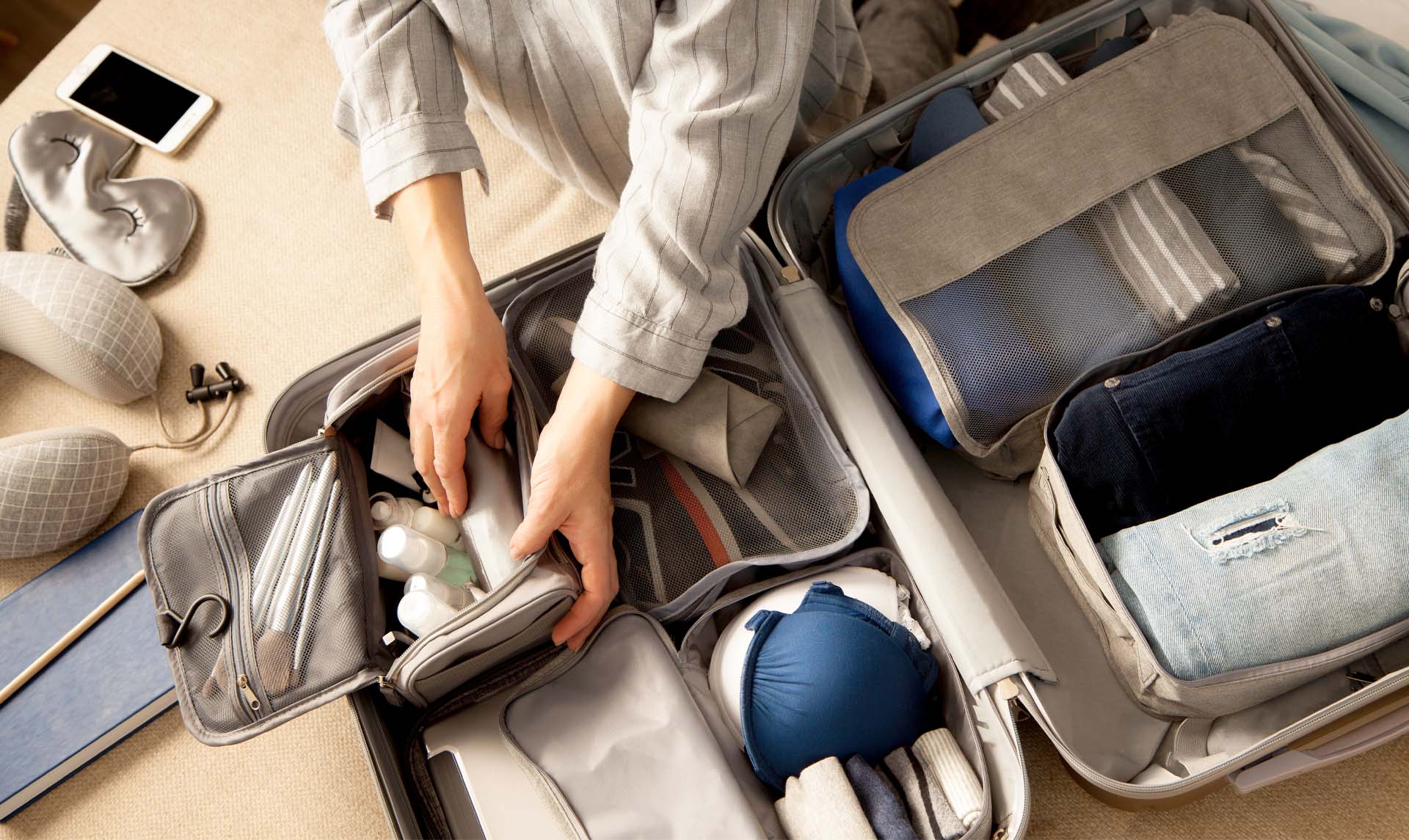No matter whether you’re heading away for a long weekend or taking a campervan around the entire country, it’s a good idea to pack a medical kit. Hopefully, you’ll never have to open it. However, travel health is important, so it is best to have everything you might need on hand as soon as you need it. This is especially true if you are overseas or in an unfamiliar location where you don’t know where to go to pick up medical supplies, or what to look for when you get there.
Your exact kit might vary depending on your own needs, the needs of your travel companions, and your planned destination, however there are certain items that should be part of any medical kit to cover all the bases.
If you’re about to travel, read these travel tips first: here’s everything you should have in a medical travel kit.
1. TravaCalm
Travel is, almost by definition, motion. And for many people, with motion comes motion sickness. This is most common on road trips and time spent on boats, but can occur on planes and trains as well.
To prevent motion sickness, pack TravaCalm and follow the directions prior to starting any trips. This will avoid the nausea and unease that comes with motion sickness, and allow you to enjoy the journey as well as the destination.

2. Sunscreen
Even if the day is overcast, sunscreen is a must for everyone when you plan to spend time outdoors. Be sure to check that the sunscreen is SPF50+, is within its use-by date and whether it’s a product that you can wear into the water or not, and re-apply as directed on the label.
The Hamilton Sunscreen range offers an excellent variety of products suited for a range of situations.
Always read the label. Follow the directions for use. Reapply frequently. Avoid prolonged sun exposure and wear protective clothing, hats and eyewear when exposed to the sun.
3. Antihistamines
Antihistamines are great to have on hand to deal with minor allergic reactions. These can deal with symptoms such as sneezing, a runny nose, skin rashes, congestion, and itchy or watery eyes.
In particular, these can be helpful should you arrive in a new place and find yourself reacting to the pollen or other irritants in the air, or even for minor reactions to mosquito bites.

4. Hand sanitiser
Hand sanitiser has become exceedingly useful, so don’t forget to add a bottle to your medical kit. It can offer a quick clean for the hands when you are unable to access soap and a tap.
5. Tweezers
Tweezers aren’t used often, but can be handy when removing anything from wood splinters to embedded pieces of broken glass in the skin.
6. Insect repellent
There are few sensations as irritating and uncomfortable as countless itchy bites flaring up after time spent outdoors. Invest in an efficient insect repellent to ward off these bugs and enjoy your time outside without the consequences.
7. Painkillers
From headaches to bruises to cramps, there are many reasons why you might need pain killers on hand while travelling. Opt for something fast acting and effective to minimise any discomfort.
Keep in mind, some countries do not allow you to bring in certain medications and some medications cannot be taken overseas, so make sure you do your homework and check this out before you travel.

8. Antacids
When acid builds up in the stomach, it can cause acid reflux, heartburn, or indigestion, all of which is relatively common yet potentially hugely uncomfortable. Antacids offer a simple solution of neutralising the acid in the stomach and can quickly rectify these unwelcome symptoms.
9. Plasters and bandages
In the case of cuts and scrapes, it’s essential to have a variety of plasters and bandages on hand to stem the bleeding and protect the site from infection. Be sure to keep these in their packaging until you need them to keep them sterile for use.
10. Cough lozenges
Cough lozenges help with sore throats and persistent coughs, especially when you’re on the road and unable to make soothing hot drinks in the comfort of your own kitchen.
11. Scissors
Finally, be sure to pack a small pair of scissors. These will be needed for opening packages and cutting bandages, and can be used as nail clippers if needed (just make sure they’re packed within your checked-in your luggage, not stored in your carry-on!).
Of all the travel tips out there, travel health is one of the most important. From painkillers to TravaCalm, it’s vital to carry some medical basics during trips just in case, and don’t forget to check this kit every trip to ensure you have what you may need and nothing is past its use-by date when you need it.




